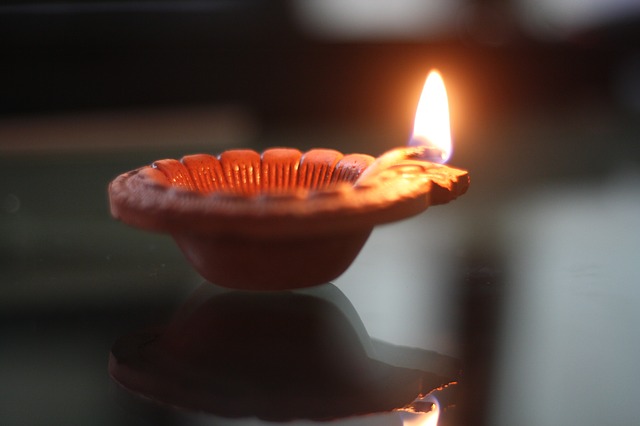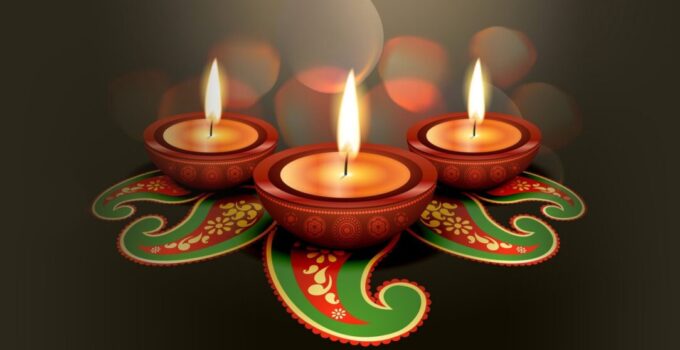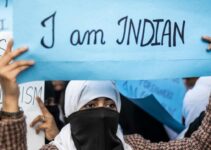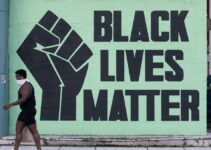Who celebrates Diwali?

Diwali is one of the most keenly awaited and most widely celebrated festivals of the Indian subcontinent. Depending on the community you belong to, this marks the return of Rama to his kingdom of Ayodhya after an exile of fourteen years, the return of the Pandavas from exile, the day of the marital union between the goddess Lakshmi and the Lord Vishnu, Mahavira’s attainment of moksha, and Guru Hargobind’s release from captivity. The festival is celebrated all over the Northern Hemisphere, and is an official holiday in India, Nepal, Trinidad and Tobago, Fiji, Malaysia, Myanmar, Sri Lanka, Guyana, Mauritius, Singapore, Suriname, and the Sindh province in Pakistan. Diwali is celebrated among the Hindus, Jains, Buddhists, and Sikhs, and by extension, it is celebrated in each part of the world where these communities have taken up residence.
The celebration
The festival is traditionally marked with the brightly lit homes and streets, the distribution of gifts and sweets to friends and family, and most of all, the lights and sounds of crackers and fireworks. It is a five-day festival, beginning with Dhanteras and ending with Bhai Dooj. Diwali is the biggest night when families assemble at one place, do new traditional finery, and exchange gifts, good wishes, and sweets among themselves. The Goddess Lakshmi is worshiped by most communities, whereas some in the Eastern part of India also worship the goddess Kali.
Commercial scope
Diwali marks an important commercial period in every region where it is celebrated. People flock to the stores to buy new clothes, furniture, cars, and precious metals and gemstones for themselves and as gifts. The sale of sweets, dry fruits, and other food items also skyrockets as it forms an important part of the celebration. Most stores, big and small, attempt to draw in more customers through advertisements of Diwali sales, which promise slashed prices and great deals. Gold and precious metals also experience a rise in prices due to the incrementally increased demands. There is a general rise in all kinds of investments, and new business ventures are also undertaken during this period since it is considered an auspicious day for new beginnings.
Criticism
Lately, the tradition of lighting fireworks and crackers in India has drawn much criticism. To be fair, sound and air pollution reach monumental levels in the days leading up to Diwali, causing immense pain and suffering not just to the people, but also to the animals. Animal abuse is also rampant on this day with reports emerging of people tying firecrackers to the terrified creatures. Air quality reduces to dangerous levels, so much so that the air in some cities is considered unbreathable. Today, sadly, the festival has become less a festival of lights and more a festival of sounds.
The festival of Diwali is all about the victory of good over evil, and the obliteration of ignorance by the light of enlightenment. In this day and age, no festival holds more significance than this, becoming symbolic of mankind’s fight against ignorance of all kinds, and our attempt to bring together all creatures in harmony.




